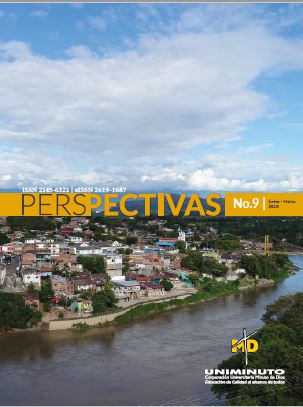Derechos fundamentales de los trabajadores en relación con el despido con justa causa por estado de embriaguez
Contenido principal del artículo
Resumen
Este artículo de reflexión describe una perspectiva de la realidad laboral colombiana de las situaciones que tienen que enfrentar los empleadores cuando los trabajadores se presentan a sus labores en estado de embriaguez. El objetivo es analizar el alcance que tienen las pruebas de embriaguez para estructurar jurídicamente el despido con justa causa, aplicando la metodología descriptiva sobre el estado actual de dicha prueba en relación con el estado de embriaguez como causal de despido. Para ello, se hizo un estudio hermenéutico de la jurisprudencia de la Corte Constitucional y la Corte Suprema de Justicia, logrando reflexionar sobre la vulnerabilidad de los derechos fundamentales del trabajador frente a la realización, por parte de los empleadores, de pruebas de alcoholemia. Se concluye que si bien las empresas tienen la libertad de escoger mecanismos para detectar si hay embriaguez etílica de un trabajador, para que proceda el despido de este por justa causa, el empleador deberá demostrar la incidencia negativa de ese consumo sobre el cumplimiento de sus obligaciones.
Detalles del artículo
Sección
Cómo citar
Referencias
Andersen, E. (1990). The three worlds of welfare capitalism. Cambridge: Polity Press, Princeton University Press.
Colombia. (1950). Código sustantivo del trabajo. Adoptado por el Decreto Ley 2663 del 5 de agosto de 1950. Diario Oficial No 27.407.
Colombia. (1991). Constitución Política de Colombia (36° ed.). Bogotá: Legis.
Corte Constitucional. (1992). Sentencia C-406 de 1992. Magistrado Ponente Ciro Angarita Barón. Bogotá. Corte Constitucional. (1992). Sentencia C-546 de 1992. Magistrado Ponente Alejandro Martínez Caballero. Bogotá.
Corte Constitucional. (2002). Sentencia T-881 de 2002. Magistrado Ponente Eduardo Montealegre Lynett. Bogotá.
Corte Constitucional. (2008). Sentencia T-158-A de 2008. M.P Rodrigo Escobar Gil . Bogotá.
Corte Constitucional. (2013). Sentencia T-565 de 2013. M.P Luis Ernesto Vargas Silva. Bogotá.
Corte Constitucional. (2015). Sentencia T-227 de 2015. M.P María Victoria Calle. Bogotá.
Corte Suprema de Justicia, Sala de Casación Laboral. (2014). Sentencia SL8002-2014- Radicación n.° 38381. Acta 21. M.P. Rigoberto Echeverri Bueno. Bogotá.
Ferrajoli, L. (2005). Los fundamentos de los Derechos fundamentales. Madrid: Trota.
Gaitán, J. (2017). El debido proceso: La Carga de la prueba en el proceso jurisdiccional transicional en Colombia. Revista Diálogos de Saberes, (46), 178.
Instituto Nacional de Medicina Legal. (2002). Resolución 414 del 27 de agosto de 2002: Por la cual se fijan los parámetros científicos y técnicos relacionados con el exámen de embriaguez y alcoholemia. Diario oficial 44917.
Instituto Nacional de Medicina Legal y Ciencias Forenses. (2005). Reglamento técnico forense para la determinación clínica de embriaguez aguda. Bogotá: Instituto Nacional de Medicina Legal y Ciencias Forenses .
Instituto Nacional de Medina Legal y Ciencias Forenses. (2015). Guía para la medición indirecta de alcoholemia a través del aire espirado. Bogotá: Instituto Nacional de Medina Legal y Ciencias Forenses.

